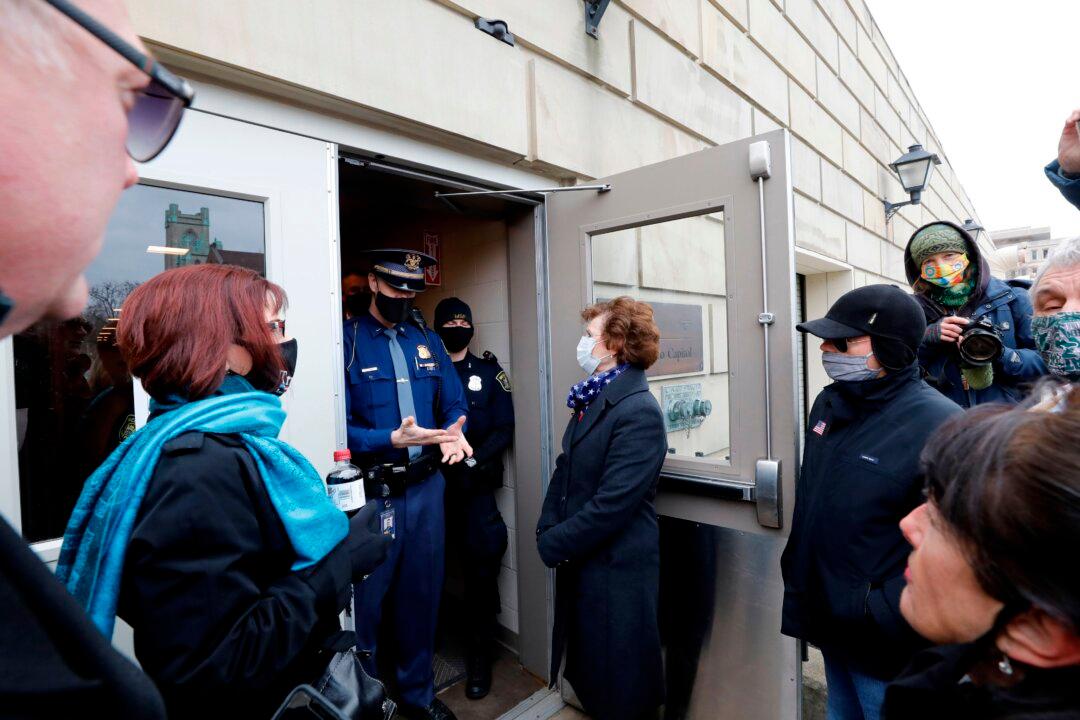Republican electors in Michigan were blocked on Monday from accessing the state capitol in Lansing.
Democratic electors were permitted to enter.


Republican electors in Michigan were blocked on Monday from accessing the state capitol in Lansing.
Democratic electors were permitted to enter.